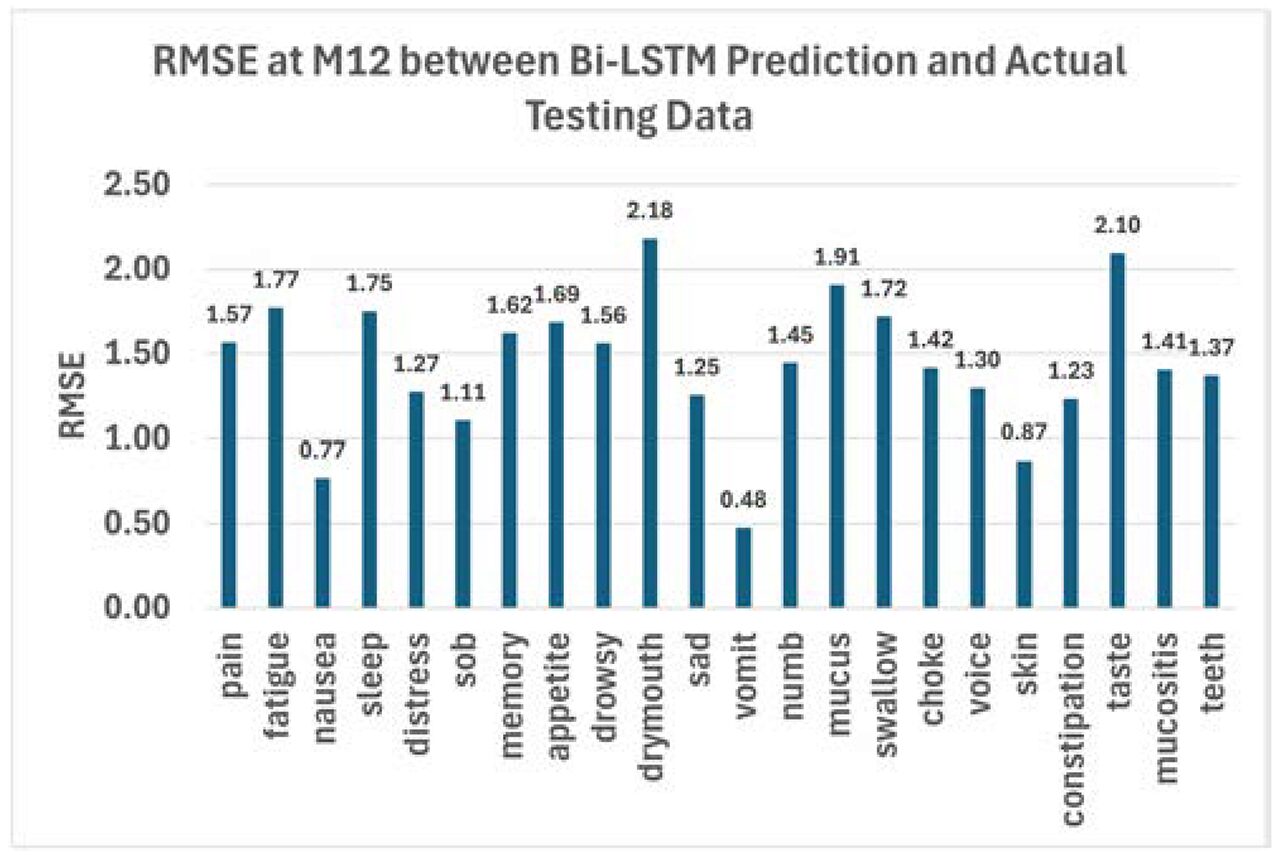PRO-Based Stratification Improves Model Prediction for Toxicity and Survival of Head and Neck Cancer Patients
PRO-Based Stratification Improves Model Prediction for Toxicity and Survival of Head and Neck Cancer Patients
Anyimadu, E. A., Wang, Y., Floricel, C., Kamel, S., Fuller, C. D., Zhang, X., Marai, G. E., Canahuate, G. M.
- Link: https://mdanderson.elsevierpure.com/en/publications/pro-based-stratification-improves-model-prediction-for-toxicity-a
- PDF: pro-based_stratification.pdf
- Caption: RMSEs at M12 for all 22 symptoms between Bi-LSTM prediction and actual testing data.
Patient-Reported Outcomes (PRO) consist of information provided directly by the patients about their health status including symptom ratings. PROs are commonly used in clinical practice to support clinical decision-making and have recently been incorporated into machine learning models to improve risk prediction. In this work, we aim to evaluate whether the inclusion of a patient stratification based on 12-month post-treatment predicted Patient Reported Outcomes improves risk prediction of radiation-induced toxicity and overall survival for head and neck cancer patients. A bidirectional long-short term memory (Bi-LSTM) recurrent neural network was used to model the longitudinal PRO data and to predict symptom ratings 12 months post-treatment. Patients were stratified using hierarchical clustering over the LSTM-predicted data. A logistic regression model was trained to predict Xerostomia at 12 months and a Cox regression model to predict overall survival. Results show that the inclusion of symptom burden clusters derived from the predicted Patient Reported Outcomes improves radiation-induced toxicity and overall survival prediction for head and neck cancer patients.
Index Terms: Patient reported outcomes (PRO), deep learning, patient clustering, regression, survival analysis, xerostomia.
https://doi.org/10.1109/JBHI.2024.3515092
